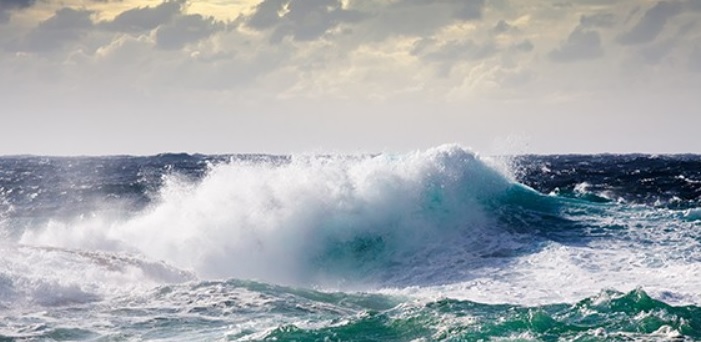The Committee on the US Marine Transportation System (CMTS) published the Maritime Transportation Extreme Weather Task Force report, providing recommendations and identified opportunities for improving industry response and policies in case of extreme weather events and preventing marine casualties from heavy weather.
The National Defense Authorization Act (NDAA) of 2017, enacted into law on December 23, 2016, directed the Secretary of Transportation, to establish, “a task force to analyze the impact of extreme weather events, such as in the maritime environment.” In response, the Deputy Secretary of Transportation forwarded the directive to the US Committee on the Marine Transportation System (CMTS) to study this issue and prepare a report.
Recommendations
- NOAA should seek to harmonize the interpretation of the definition of ‘heavy weather’ vs ‘extreme weather’ and engage in efforts to improve the policies that clarify vessel response in circumstances of extreme weather. Specifically, NOAA and the USCG should coordinate and pursue amendments to the International Safety Management Code to require commercial safety management systems to incorporate avoidance policies or procedures for extreme weather.
- NOAA should continue working with international partners to develop standards for Electronic Chart Display and Information System (ECDIS) weather overlays to modernize the dissemination of critical maritime weather information directly to shipboard navigation systems.
- Leverage federal resources to increase data access, visualization, and intelligence gathering to better analyze the accuracy of weather forecasts and the effective response of NWS warnings, and provide for enhanced decision support services.
- NOAA should continue to engage in the Ship Operations Cooperative Program (SOCP) Heavy Weather Working Group and Joint Technical Commission for Oceanography and Marine Meteorology (JCOMM) to increase real-time reporting of weather observations from vessels at sea.
- It is recommended that NOAA increase international collaboration and the sharing of scatterometry data to further enhance the agency’s ability to analyze and predict areas of dangerous winds at sea.
- The Task Force encourages maritime training academies and other schools to review the final El Faro report by NTSB to determine where additional risk management training could be incorporated and provided, as appropriate.
- The Navigation General modules on USCG examinations for deck officer credentials should be reviewed to determine if extreme storm response sections should be modified or enhanced for increased safety of life at sea.
- Increase public-private engagement between federal agencies and the commercial vessel operator community to focus on increasing the number and quality of weather observations from ships of opportunity.
Identified Opportunities
Identified Opportunity for Improvement 1: During discussions regarding the way in which industry receives extreme weather information, the Ship Operations Cooperative Program (SOCP) expressed their concern that ECDIS overlays may be subject to cyber invasion and that vessel operators may benefit from additional prevention measures. ECDIS overlays must be protected from cyber security incidents. SOCP reported concern with incidental cyber interferences such as reported cases of seaman plugging a phone into an information port on an ECDIS and crashing the ECDIS.
The Task Force recognizes that ECDIS overlays for weather can be interrupted or disrupted by cyber incidents from private sector industry practices. However cyber incidents related to standard operating procedures and security practices are not under the Task Force directive and will be forwarded to the Department of Homeland Security National Cybersecurity and Communications Integration Center and the USCG National Maritime Security Advisory Committee. This notation has also been forwarded to MARAD Office of Safety, Security, and Environment to consider as part of their ongoing engagement with company security officers. In addition, weather information is generally available in alternative methods such that backup sources can be accessed.
Identified Opportunity for Improvement 2: In general discussion about extreme weather operations, SOCP members stated that side-launch lifeboats may cause casualties with davits and parting of the falls. The Task Force has forwarded this to the USCG.
Further details can be found herebelow:































































